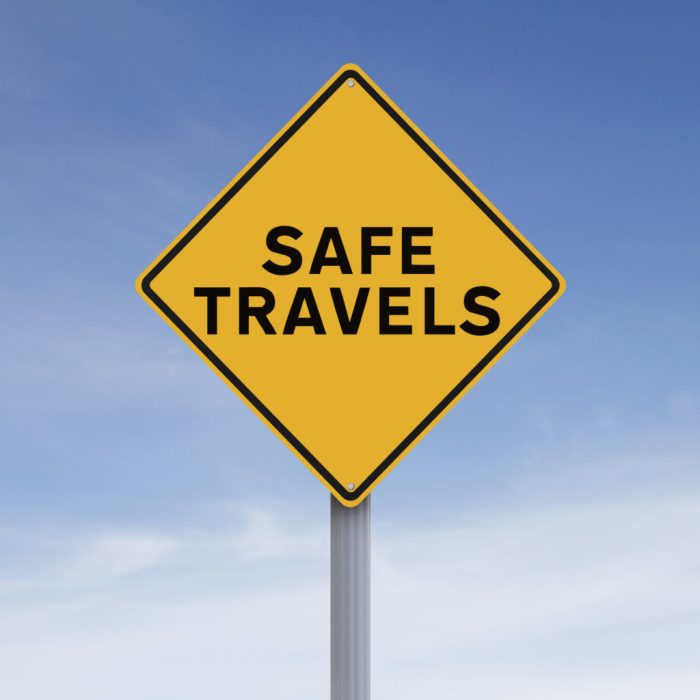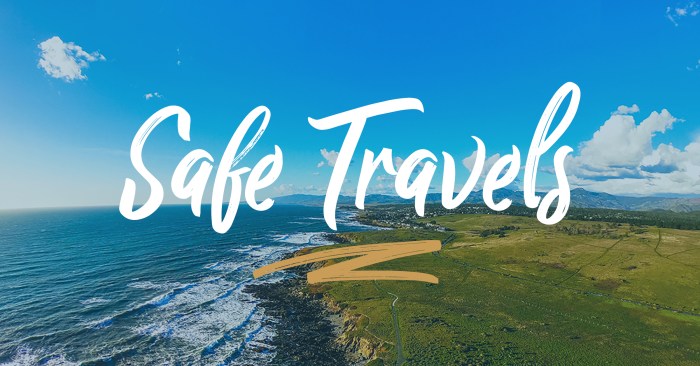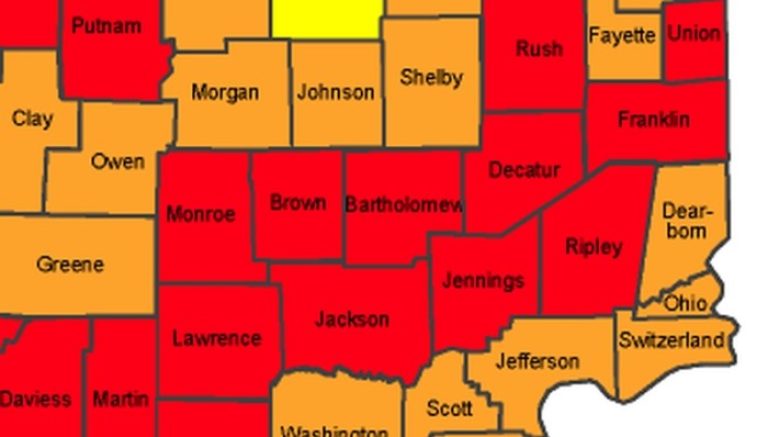Safe travels in Spanish isn’t just about knowing the translation of “Have a safe trip”—it’s about understanding the cultural nuances, emergency procedures, and practical phrases that ensure a smooth and secure journey through Spanish-speaking countries. This guide equips you with the essential vocabulary, cultural insights, and safety tips to navigate your travels with confidence and peace of mind. We’ll cover everything from polite greetings to handling unexpected situations, making your adventure safer and more enjoyable.
We’ll explore various translations of “safe travels,” essential phrases for everyday situations and emergencies, cultural considerations for different regions, and safety tips for various transportation methods. By the end, you’ll be prepared to handle most situations you might encounter while traveling in Spanish-speaking lands.
Direct Translations of “Safe Travels”

Saying “safe travels” in Spanish offers a chance to show a bit of cultural understanding and personalize your farewell. While a direct translation is possible, the best choice depends on your relationship with the person and the context of the trip.There are several ways to wish someone safe travels in Spanish, each with slightly different connotations. Choosing the right phrase can make your goodbye more meaningful.
Different Spanish Translations for “Safe Travels”, Safe travels in spanish
Here are three options, ranging from informal to formal, along with explanations of their usage:
| Translation | Formality | Region | Notes |
| ¡Buen viaje! | Informal | All Spanish-speaking regions | A very common and widely understood phrase. Literally translates to “Good trip!” Suitable for friends, family, and colleagues you’re on friendly terms with. |
| Que tengas un buen viaje. | Informal to slightly formal | All Spanish-speaking regions | This translates to “May you have a good trip.” Slightly more polite than “¡Buen viaje!”, making it appropriate for a wider range of situations. |
| Que tenga un viaje seguro. | Formal | All Spanish-speaking regions | This translates to “May you have a safe trip.” This option directly addresses the “safe” aspect and is suitable for more formal situations or when you want to express extra concern for someone’s well-being. |
Common Phrases Related to Safe Travel in Spanish: Safe Travels In Spanish

Knowing a few key Spanish phrases can significantly improve your safety and experience while traveling in Spanish-speaking countries. These phrases can help you navigate unfamiliar situations, ask for assistance, and ensure your well-being. Being able to communicate effectively, even with basic phrases, can make a big difference.
Useful Phrases for Seeking Assistance and Directions
These phrases are invaluable for getting help when lost or needing directions. Clear communication is crucial in unfamiliar environments, and these examples provide a starting point for effective interaction.
-
¿Dónde está…? (Dohnday eh-stah…?)
– This means “Where is…?” and is followed by the place you’re looking for. For example, “¿Dónde está el baño?” (Where is the bathroom?) or “¿Dónde está la estación de policía?” (Where is the police station?).
-
¿Cómo llego a…? (Koh-moh yeh-go ah…?)
-This translates to “How do I get to…?” You would then specify your destination. For example, “¿Cómo llego a la embajada de Estados Unidos?” (How do I get to the US embassy?).
-
¿Me puede ayudar, por favor? (Meh pway-day ah-yoo-dahr, por fah-vor?)
-This polite phrase means “Can you help me, please?”. It’s a versatile phrase useful in many situations requiring assistance.
Phrases for Reporting Incidents
Knowing how to report an incident, whether it’s a theft or an accident, is crucial for your safety and well-being. These phrases will help you communicate the situation effectively to the authorities or other individuals.
-
¡Ayuda! (Ah-yoo-dah!)
-This is a simple but vital phrase meaning “Help!”. Use this in emergencies where immediate assistance is needed.
-
He sido robado/a. (Eh see-doh roh-bah-doh/ah.)
-This means “I have been robbed.” Use “robado” if you are male and “robada” if you are female.
-
Necesito llamar a la policía. (Neh-seh-see-toh yah-mahr ah lah poh-lee-see-ah.)
-This translates to “I need to call the police.” This phrase is useful in situations requiring police intervention.
Mastering a few key Spanish phrases can significantly enhance your travel experience in Spanish-speaking countries, transforming potentially stressful situations into manageable ones. Remember that cultural awareness is just as crucial as knowing the language itself. By combining linguistic preparedness with an understanding of local customs, you can ensure a safe, enriching, and memorable journey. So, pack your bags, learn some Spanish, and get ready for an amazing adventure!
Frequently Asked Questions
How do I politely ask for help in Spanish?
You can use phrases like “¿Puede ayudarme, por favor?” (Can you help me, please?) or “¿Necesita ayuda?” (Do you need help?).
What’s the best way to report a lost item in Spanish?
Say something like “He perdido mi [item]” (I’ve lost my [item]) and ask for assistance from local authorities or staff.
Are there specific safety concerns for women traveling alone in Spanish-speaking countries?
Yes, women should be extra cautious about their surroundings, avoid walking alone at night, and be aware of their belongings. Research specific safety advice for the areas you’ll be visiting.
How do I call emergency services in Spanish-speaking countries?
Emergency numbers vary by country. Research the local emergency number before you travel. In many places, 911 or a similar number works.
